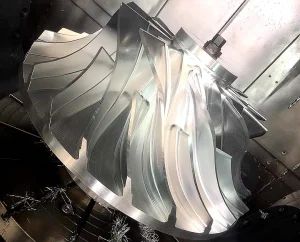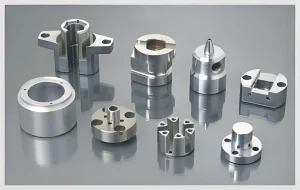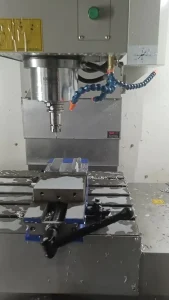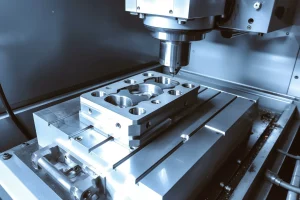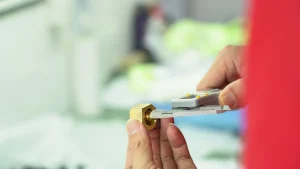Introduction
In the modern manufacturing industry, metal surface treatment has become an indispensable process. This process involves applying coatings, finishes, or other treatments to the metal surface to improve its physical properties such as corrosion resistance, hardness, and appearance. For a metal surface treatment factory to stand out in a competitive market, it must possess a range of critical capabilities that ensure high-quality production, efficiency, and adherence to industry standards.
This article explores the essential capabilities that a professional metal surface treatment factory must have, from technical expertise and advanced equipment to strict quality control measures. By understanding these capabilities, businesses can make informed decisions when selecting a surface treatment partner or improving their internal processes.
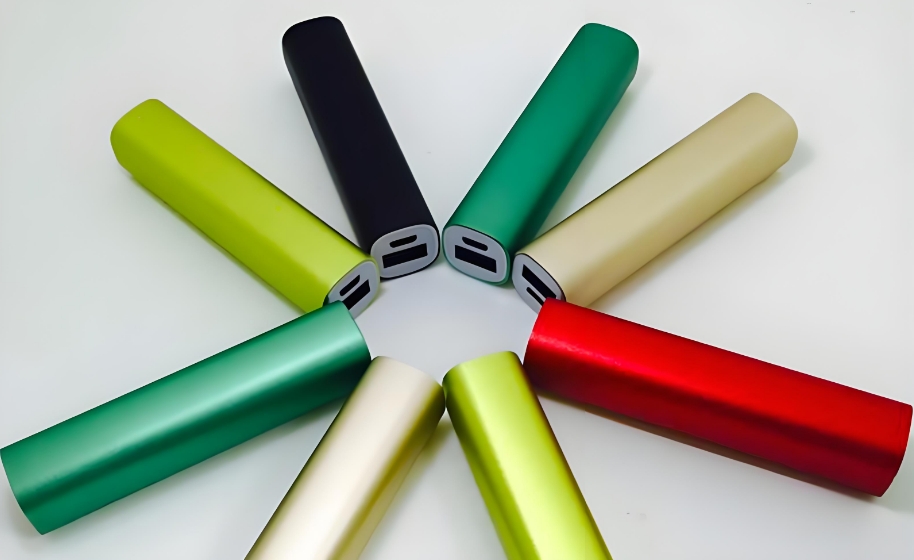
1. Understanding Metal Surface Treatment
Definition and Importance
Metal surface treatment refers to various processes used to modify the surface properties of metals. These processes improve the durability, functionality, and aesthetic appeal of metal products. The primary objectives are to enhance properties such as corrosion resistance, wear resistance, and electrical conductivity.
Some of the most common methods include coating (such as painting, anodizing, or galvanizing), polishing, electroplating, and heat treatment. Each method is tailored to specific applications, industries, and customer requirements.
Common Methods and Applications
- Anodizing: Commonly used for aluminum, this electrochemical process creates a thick oxide layer, enhancing the metal’s resistance to corrosion and wear.
- Electroplating: A coating process that deposits a layer of metal (like gold or chrome) onto a substrate. This improves the appearance and durability of the product.
- Powder Coating: Involves applying a dry powder that is then baked to form a durable, protective layer on the surface.
- Galvanizing: Coating steel or iron with a layer of zinc to protect against corrosion.
- Heat Treatment: Processes like quenching and tempering alter the properties of metals, improving hardness, strength, and wear resistance.
2. Key Capabilities for a Professional Metal Surface Treatment Factory
Technical Expertise and Knowledge
A professional metal surface treatment factory must have a team of skilled technicians and engineers with deep knowledge of metallurgy, chemistry, and surface treatment techniques. The factory should be able to offer expertise in selecting the right treatment for each type of metal and application. This knowledge ensures that the treatment is effective and optimized for the desired results.
The staff should be able to provide insights into material selection, process parameters, and performance testing. A well-trained team helps to minimize errors, improve consistency, and ensure that the treated metal meets the required specifications.
Advanced Equipment and Technology
To stay competitive and deliver high-quality results, a metal surface treatment factory must invest in advanced equipment and technology. This includes automated systems, computer-controlled machines, and precision testing instruments. Some examples of the necessary equipment include:
- Electroplating Tanks and Systems: For controlled metal deposition.
- Spray Booths: For powder coating and spray painting processes.
- Heat Treatment Furnaces: For processes like annealing, tempering, and hardening.
- Anodizing and Galvanizing Equipment: For coating and corrosion protection processes.
- Quality Control Testing Devices: To ensure that treated surfaces meet industry standards for hardness, corrosion resistance, and adhesion strength.
By using advanced equipment, a factory can increase production efficiency, reduce human error, and achieve more precise results.
Customization and Flexibility
One of the key capabilities of a professional metal surface treatment factory is the ability to offer customized solutions. Clients from various industries—automotive, aerospace, electronics, and more—often have specific requirements for their metal parts, whether it’s a certain finish, coating thickness, or durability.
A flexible factory can adjust its processes and equipment to meet these unique needs. This includes adapting treatments for non-standard materials or offering bespoke solutions for small batches or prototype parts. Flexibility also extends to meeting tight delivery schedules or offering a quick turnaround for urgent projects.
Quality Control Systems
Ensuring the quality of the treated metal is paramount. A professional metal surface treatment factory must have a robust quality control system in place to monitor the entire process. This includes:
- Incoming Material Inspection: Verifying that the raw metals meet the required specifications before treatment begins.
- In-process Monitoring: Using sensors, cameras, and other monitoring devices to track variables such as temperature, coating thickness, and chemical composition during processing.
- Final Product Testing: Conducting tests to measure hardness, corrosion resistance, adhesion, and other surface properties to ensure the treatment meets the client’s requirements.
A strong focus on quality control ensures that the factory produces reliable, consistent, and durable results, reducing the risk of defects and customer complaints.
Environmental and Safety Standards
A professional metal surface treatment factory must comply with local environmental and safety regulations. Many surface treatment processes use chemicals or produce waste that could harm the environment if not managed properly. Factories must adhere to strict environmental standards to minimize pollution and reduce their carbon footprint.
Safety protocols must also be in place to protect workers from hazardous materials, high temperatures, or equipment malfunctions. This includes regular safety training, emergency procedures, and proper disposal of waste materials.
3. The Role of Innovation in Surface Treatment
Emerging Technologies
The metal surface treatment industry is constantly evolving, with new technologies and materials being developed to meet changing demands. Emerging trends include:
- Nanocoatings: These ultra-thin coatings offer enhanced durability, corrosion resistance, and self-cleaning properties.
- Laser Surface Treatment: A precision method that uses lasers to modify the surface properties of metals, such as improving hardness or creating microtextures for better adhesion.
- Environmentally Friendly Processes: With increasing environmental concerns, many factories are shifting towards eco-friendly treatments, such as water-based coatings or alternative, less-toxic chemicals.
Research and Development
A factory committed to innovation will have an active research and development (R&D) team that continuously seeks to improve existing processes or develop new treatment techniques. By investing in R&D, a factory can stay ahead of industry trends and offer customers cutting-edge solutions. This capability also helps the factory adapt to changing market needs, ensuring long-term competitiveness.
4. Conclusion
In conclusion, a professional metal surface treatment factory must possess a wide range of capabilities to meet industry demands. From technical expertise and advanced equipment to quality control systems and environmental standards, each of these factors plays a critical role in ensuring high-quality outcomes. By embracing innovation and maintaining flexibility, these factories can provide customized solutions that meet the unique needs of their clients, whether for large-scale production or specialized applications.
With the right combination of knowledge, technology, and quality control, a professional metal surface treatment factory can not only meet but exceed expectations, delivering metal products that are durable, functional, and aesthetically pleasing.
This article provides an in-depth look at the capabilities required for a professional metal surface treatment factory. Whether you are looking to partner with a treatment provider or establish your own factory, these insights will help you understand the critical factors involved in achieving the highest quality standards in metal surface treatment.


